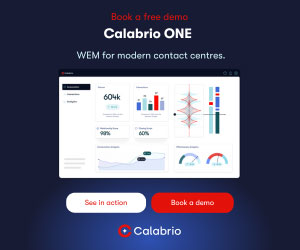It is no secret that, as consumers, we want to communicate with a brand when we want, however we want.
In fact, most of us use two or more channels, top of which are the website (85%), phone (75%), email (65%) and live chat (58%).
Despite this, a recent study found that 58% of retailers provide different answers to the same question across multiple channels. This is not a surprise, as too often, although a contact centre will support multichannel communication, these channels are managed in silos.
For the planning department, this creates great complexity and manual effort if their workforce management system does not offer multichannel forecasting methods.
So how can you optimise resource planning in multichannel contact centres?
Get the Technology Right
Most of the latest enterprise workforce management (WFM) solutions today facilitate automated or serviced queues across multiple channels. It may be difficult, but the “universal” queue or the integrated platform is possible, enabling the customer to move easily between channels.
Cost constraints and infrastructure may hinder the migration to a converged platform. However, the good news is that there is technology available that can link existing channels to populate and consolidate customer information automatically and automate navigation.
Understand the Demand and Get the Staffing Right
Multichannel contact centres require an accurate method of forecasting and scheduling resource. This is only possible with a WFM application that can track volumes for multiple contact types and create multi-skilled schedules.
The WFM application will be able to forecast the requirements for each contact type across the day and also provide proactive real-time management to cope with unexpected demand.
Also, WFM will capture the volumes and handling times to build a set of historical profiles that can be used to improve the accuracy of forecasts across different contact types.
Empower the Employees
Consistency of service is critical for the multichannel experience, and this can only be achieved if the employees have access to knowledge and tools for delivering the service.
Without a knowledge base and effective performance-management and quality-monitoring support, it will be a real challenge for the employee.
Real-time process guidance can be used to assist and prompt employees, whereas other technologies, such as interaction analytics and business intelligence, can provide meaningful insight to the business to ensure processes are efficient and agents are fully supported.
Author: Business Systems
Published On: 28th Apr 2017 - Last modified: 26th Feb 2025
Read more about - Expert Insights, Business Systems, Forecasting, Omnichannel, Scheduling

































